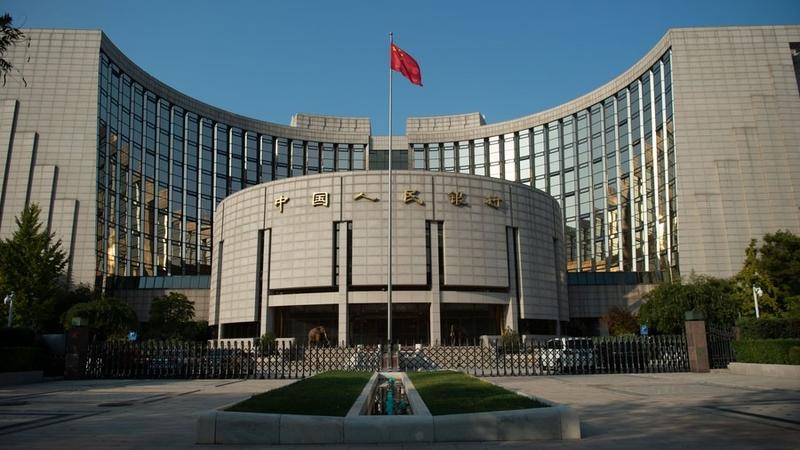PBOC chief: China to focus on sustainable growth

This undated file photo shows an exterior view of the People's Bank of China in Beijing, capital of China. [Photo/Xinhua]
Economy: Providing new growth drivers key
China's monetary policy will likely remain supportive of economic recovery in 2024 with a focus on nurturing new growth drivers, experts said after China's central bank governor emphasized the need to pursue sustainable economic growth.
They said that aggressive monetary stimulus is unlikely as the country's price levels are expected to recover amid strengthening economic momentum. Instead, the policy priority would be pursuing a steady credit expansion and an optimized lending structure to transition the country's growth engine from debt-reliance mode to more sustainable modes.
Addressing a conference in Hong Kong on Tuesday, Pan Gongsheng, governor of the People's Bank of China, said, "I am confident that China will enjoy healthy and sustainable growth in 2024 and beyond."
The conference was co-hosted by the Hong Kong Monetary Authority and the Bank for International Settlements.
Noting that the Chinese economy is undergoing a growth model transition, Pan said the traditional model of relying heavily on infrastructure and real estate could generate higher growth, but it would delay structural adjustment and undermine growth sustainability.
"High-quality and sustainable growth is far more important. So right now, we should focus more on improving economic structure and forming new growth drivers," Pan said, adding that plenty of factors will underpin China's economic prospects, including the country's innovation ability, big market, good infrastructure, well-established industrial chains and rich, well-educated human resources.
Echoing Pan's remarks, the PBOC's third-quarter monetary policy report, published on Monday, underscored the rising urgency to accelerate economic transformation due to the diminishing effect of debt on driving growth and the significant change in the supply-demand relationship in the real estate market.
Experts said this indicates that the central bank will step up efforts to pursue a growth model less reliant on debt by precisely boosting lending to key areas, providing new growth drivers and making better use of existing loans.
The PBOC report pledged to funnel more financial resources into technological innovation, private and smaller businesses, advanced manufacturing and green development, and pay more attention to improving the efficiency of existing loans in supporting economic growth.
Wang Qing, chief macroeconomic analyst at Golden Credit Rating International, said that given the large size of outstanding renminbi loans, worth more than 230 trillion yuan ($32 trillion), China is more likely to focus on optimizing lending structure to support the real economy than simply pursuing high credit growth.
While the credit expansion of local government financing vehicles and the real estate sector slows, technological innovation and other key areas may receive more financial support, Wang said. "A flood of stimulus measures should be firmly avoided, because it could trigger high inflation and financial risks in the future."
Pan, the PBOC governor, said that China's inflation will recover as the economy continues to gain momentum. The country's consumer price index, a main gauge of inflation, is gradually bottoming out, he said, noting that October's negative CPI growth — down 0.2 percent year-on-year — was mainly attributable to food prices and is unlikely to continue.
Experts said that focusing more on promoting economic transformation does not indicate a change in the overall accommodative stance of the monetary policy, which will continue to provide solid support for economic development next year.
The PBOC report said the central bank will create favorable monetary and financial conditions, promoting steady expansion in money and credit supply and further encouraging financial institutions to reduce lending interest rates.
Xiong Yuan, chief economist at Guosheng Securities, said that more accommodative measures are likely in the offing in 2024, including reductions in interest rates and the reserve requirement ratio and the launch of new structural policy tools.
The central bank has also reinforced its commitment to guarding the stability of the renminbi exchange rate as the report stressed the need to ward off the formation of self-reinforcing unidirectional expectations and keep the renminbi exchange rate overall stable at a reasonably balanced level.
Photos
Related Stories
Copyright © 2023 People's Daily Online. All Rights Reserved.









